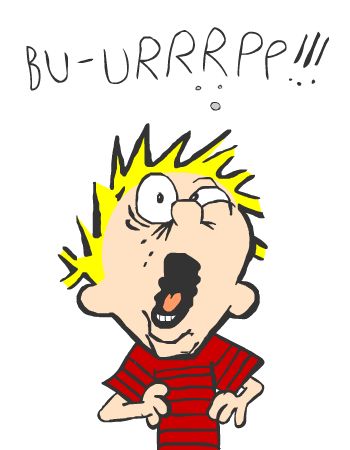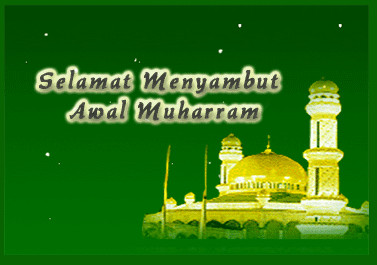What are the Cultural in Malaysia?
Culture Practices in Malaysian, Three Major Ethnic Groups (Malaysia) Integration Countries
· Chinese
· Malay
· Indian

·
The uses of Right Hand
Traditionally, the common Malay culture
practices were the uses of right hand. Malay reputed the uses of left hand are
rude or unrespectable, left hand are usually apply for dirty works such as
cleaning oneself, closet , toilet or typical works.
In fact, Malay consider right hand such
an appropriate hands to holding, receiving or touching someone, a respectful
action. Right hand symbolized the significance of pure and honest in Malay
Cultural Practices.
·
Touching
Traditionally, touching or other
physical contact is generally avoided for female except for specific situation
or depending upon the relationships as the age differences or others as well.
Malay in opposite sexes is generally avoided to contact in public even the
innocuous act of shaking hands, that were the prohibit of Malay culture. In
fact , hugging , kissing or embracing such physical contact activity is totally
absent in public for Malay, except for the modernized & Western conceptual
Malays which they generally ignore this. In general, when meeting someone in
opposite sexes, Malay decided to bows or just smiled for response, touching is
absolutely avoided due to some reason of Cultural practices.
- Greeting Practices
In Fact, the greeting Practices is
significant for Malay.

·
Daily Practices
-
Every Friday went to temple ( Pray)
- Should wash their legs before enter temple
-
Necessary to wear songkok for male , scarf for female
This is Malay traditional attire while they were practicing their cultural. When also visit the temple every Friday called" Semayang"
Malay Traditional Attire included Baju Kurung, Baju Melayu, Songkok
Baju Kurung ( Female)
Baju Melayu ( Male)
Head Dressing ( Scarf) Female
Head Songkok ( Male )
The Perspective Culturally Practices for Eating Manners
·
Animals
Malay doesn't eat pork because they assume pigs as the animal’s sources of illness, dirty, unclean and none
sterilize animals. In their perspectives, pig could carry diseases for them and
they don’t really preferred pigs. These concepts conflated the cultural
practices for Malay.
The Unique Eating Manner of Malay
Malay Prohibition & Superstitious / Special Taboos
The Unique Eating Manner of Malay
- Malay usually won't chew and talk at the same times
- Malay don't swallow the big bites even though they were rush or hungry
- Shells,Bone or inedible residue were then place on the special platter provided
- Foods should not placed on floor , it is a sign of respect for God provide them food
- Malay didn't point on food or someone else while eating , represent respect
- Malay people usually only done cleaning their plate then drink even though the drinks were served simultaneously
- Burping habit is generally avoided in eating for Malay
- A bowl of water is generally provided on table ( commonly for cleaning fingers after meal)
Malay Prohibition & Superstitious / Special Taboos
- Malay believed that Pointing rainbow will make your fingers crippled, they believed the appear of rainbow will cause rain and make them fever as well
- Not allowed to sit on pillow especially they believed sitting on pillow will cause the allergic or unlucky curse to them
- Do not open umbrella in houses , especially snake will enter the house or bad luck sight
- Girls who sing in the kitchen will not be married
Malay Special Festival Practices
- Hari Raya Aidilfitri
Hari Raya Aidilfitri is the festival of Malaysian-Malay New Year, usually held on the month of July - August right after the Hari Raya Puasa
Hari Raya Aidilfitri is the day where all the Malay return to their hometown to celebrate with their families. ( Balik Kampung- Malay)It is necessary to serve and make Traditional Cuisine during this day, especially Nyonya Kuih.
Its is really delicious especially the smell will compel other to try it. Haven't taste it? Try now!
Most of the Light Lamps will place around the house. It is the day to greet with others during this days. Everyone should say "Salam Aidilfitri" as the signal of respect. Traditionally, Malays will wearing the traditional costume to visit temples. Children will receive Green Bao(money) from their parents or eldest. It is quite similar to Chinese , the only differences is Green Bao and Red Bao.
- Hari Raya Puasa
Hari Raya Puasa is the festival before the Hari Raya Aidilfitri( Malay New Year) , this festival is mean to Prohibition against eating from the morning to late evening for every Maghrib prayer. This festival general sustain a month long.
More About Hari Raya Puasa- view here http://www.touristorbit.com/uncategorized/the-significance-of-hari-raya-puasa/
Sources: 'Admin, "The Significance of Hari Raya Puasa" , May 29, 2012,Tourist Orbit, www.touristorbit.com, http://www.touristorbit.com/uncategorized/the-significance-of-hari-raya-puasa/
- Hari Raya Haji
The Origin of Hari Raya Haji and its Practices-
view here http://www.calendarlabs.com/holidays/singapore/hari-raya-haji.php
Sources: ' Calender Labs, "Hari Raya Haiji/Eid ul-Adha/ Bakri Id",October 15,2013.http://www.calendarlabs.com/holidays/singapore/hari-raya-haji.php
The significance behind Awal Muharram and its practices
view here= http://muslimvillage.com/2012/11/15/16620/islamic-new-year-a-time-of-contemplation-and-spiritual-renewal/
view here= http://muslimvillage.com/2012/11/15/16620/islamic-new-year-a-time-of-contemplation-and-spiritual-renewal/
Sources: 'Sheikh Haisam Farache, " Islamic new year a time of contemplation and spiritual renewal", November 15, 2013. MV Media, Muslim Village.com. http://muslimvillage.com/2012/11/15/16620/islamic-new-year-a-time-of-contemplation-and-spiritual-renewal/































.gif)

1 comments:
Nice Blog!
Post a Comment